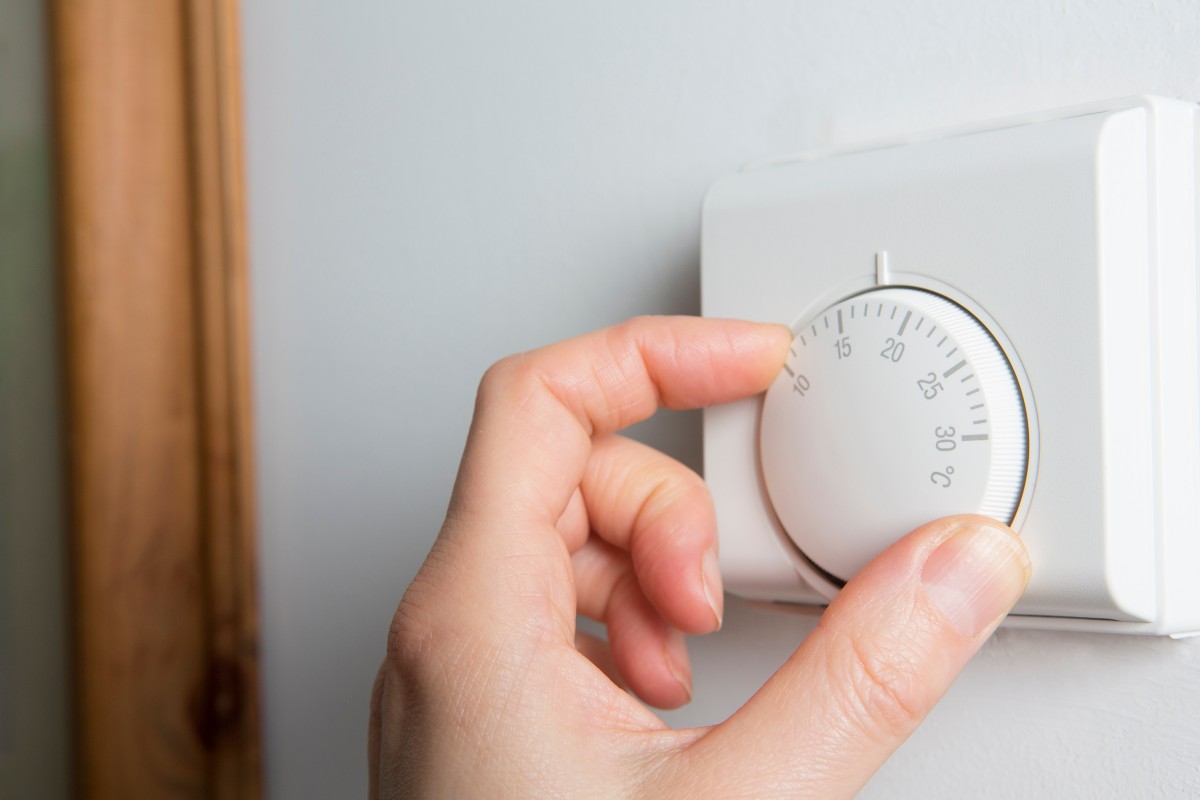
What Temperature Should a Bedroom Be?
Alright, let’s try and settle a debate that’s probably been going on in households across the UK for decades: What temperature should your bedroom actually be?
There are those who sleep with the window wide open all year round while others are wrapped up under the thickest duvet and snuggliest blankets with the radiator on full blast. But if you find yourself waking up groggy, sweaty, or freezing cold, then the chances are your bedroom probably isn’t at the optimal temperature.
So, what’s the magic number?
According to sleep experts, the ideal bedroom temperature is somewhere in between 16°C and 18°C (1). Now, this might sound a bit chilly for some, but there is a science behind it.
As you’re falling asleep, your body naturally begins the process of cooling down. A cooler room helps to speed that process up somewhat, signalling to your body that it’s time for it to wind down and relax. If your room’s too warm, it can seriously mess with your internal body clock. Leaving you restless, or waking up in the middle of the night feeling hot, sweaty and uncomfortable.
So, if you’re regularly finding yourself waking up in a hot sweat or furiously sticking your limbs out from under the duvet to try and cool down, chances are your room temperature is too high.
What if it’s too cold?
On the flip side, if your room is too cold, your body might have more difficulty staying warm, which also has the ability to disrupt your sleep. You might be finding yourself curled up with tense muscles and feeling like you just can’t quite drift off.
The key is to find that ideal temperature zone - the perfect in between.
What about kids, babies and the older generation?
It’s important to bear in mind that different age groups also have slightly different needs:
-
Babies: They can’t regulate their body temperature as well as adults, so the NHS recommends a room temperature of around 16°C to 20°C, with 18°C being the sweet spot (2). A nursery thermometer can be a helpful tool to help you keep tabs without the guesswork.
-
Toddlers and young kids: Similarly to babies, they still need a room that’s a comfortable temperature but not too hot – once again, 18°C is a good aim.
-
Older adults: Research suggests that people over 65 may prefer slightly warmer temperatures from 19-21°C with bedrooms needing to be kept at a minimum of 18°C. Just be careful not to be too extreme as temperatures much higher than 21°C will likely cause difficulties sleeping (3).
How to keep your bedroom at the right temperature
If you remember trying to sleep during the UK’s recent heatwave where temperatures reached 30°C, or if you've had the misfortune of your boiler deciding to play up in the winter when you’re freezing cold. You’ll understand how hard it can be to keep your room at a comfortable temperature.
Below are a few handy tips to try and keep things under control:
1. Get a thermometer
While it may seem a bit over the top, guesswork just doesn’t cut it. Pick up a cheap room thermometer so you actually know the average temperatures for your room then you can better decide on how to try and tackle the issue. They can be especially useful in kids’ bedrooms and nurseries too.
2. Use layers instead of central heating
Instead of constantly cranking up the thermostat, think smarter. Opt for a duvet that suits the season (tog ratings are a lifesaver), and then you can add or remove blankets as needed. That way, you can adapt through the night if things change, plus you can save on that pesky heating bill too.
3. Open the window – even just a crack
A bit of fresh air can work wonders, even if you only open it for 10 minutes before bed. It really helps bring the room temperature down and prevent the air from feeling stuffy. If you’re particularly worried about noise filtering in or safety, window restrictors or a small quiet fan might be a better option for you.
4. Block out heat (or cold)
Investing in some good quality blackout curtains or thermal blinds can do the best of both worlds, they help keep heat out during summer and in during winter. They might be just what you need,
5. Keep electronics out
Laptops, TVs, chargers all give off heat. If you’re already struggling with your bedroom being a bit warm, these gadgets aren’t going to do you any favours. Try to keep them out of the bedroom or switch them off fully before bed. Plus you might find yourself sleeping better without those electronic distractions late at night.
6. Have a warm bath or shower before bed
This might sound a bit counterproductive, but warming yourself up with a hot bath or shower actually causes your core body temperature to drop afterwards, which helps you feel sleepy. Clever, right?
Bedroom temperature: final thoughts
A safe temperature to aim for is around 16°C to 18°C for most adults. Of course, you can adjust this slightly depending on age or personal preferences, but try not to go to either extreme temperature wise. Focus on creating a calm, cool, and well-ventilated space. It’s not about frantically trying to make your room the exact same temperature every night, but it is about consistency, comfort, and helping give your body the conditions it needs to fully relax.
And if you live with someone who insists the bedroom should be 25°C, well… good luck. Maybe buy them an electric blanket and crack the window when they’re not looking.
Sources:

Gemma Henry - Content Lead
Gemma finds sleep fascinating and describes the discovery aspect of her role as eye-opening. Her keen eye for detail and dedication to thorough research ensures that Bensons customers get the informative sleep-based advice they're looking for.